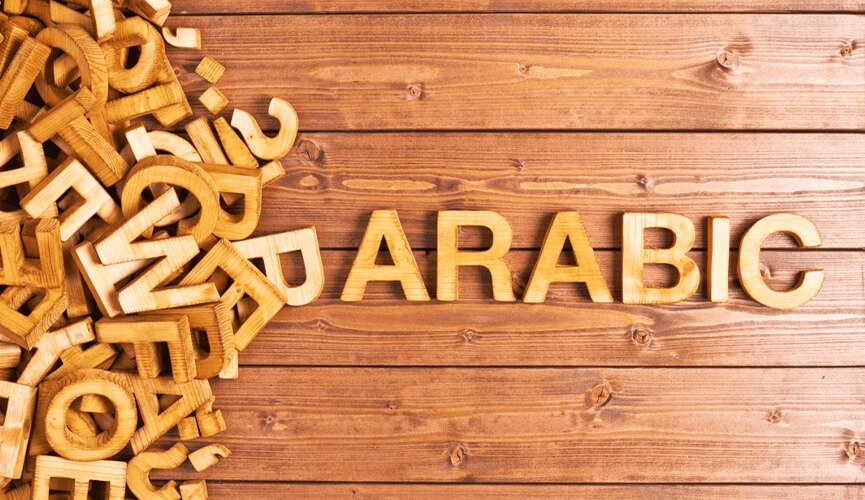Egyptian culture is one of the world’s oldest and most fascinating cultures, with a rich history spanning thousands of years. Part of what makes Egyptian culture so unique is the language spoken in the country. Egyptian Arabic, the most widely spoken language in the country, is a beautiful and complex language that has developed over thousands of years. This blog post will focus on the What language is spoken in Egypt, known for its rich past and culture.
Egypt has been settled for many thousands of years, and its old society was one of the most advanced in the world. The Egyptians had their written language called hieroglyphs, which was their primary way of talking to each other.
History of the Language in Egypt
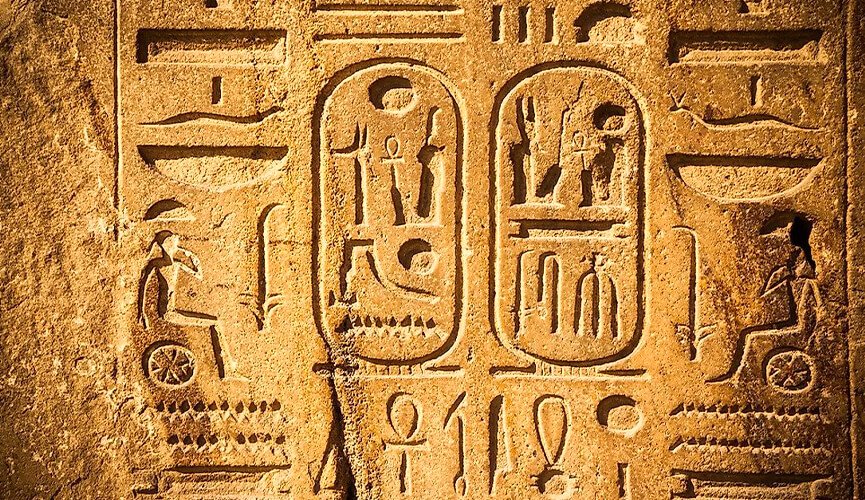
Egypt is home to one of the world’s oldest cultures, meaning its language has changed and grown significantly. Ancient Egyptians spoke “Egyptian,” one of the world’s oldest languages. Egypt’s language is known for having complicated grammar and a lot of hieroglyphs, which were used to write until 400 AD. Hieroglyphs were a way for the Egyptians to write on papyrus, stone, and even walls.
After the Muslims took over Egypt, Arabic quickly spread all over the country and became the official language. Egyptians kept using hieroglyphs, but they also started adding Arabic words and phrases to their language. During the Ottoman Empire, Turkish and Persian words also began to be used in Egypt.
Many old hieroglyphs and Arabic words are still used in the Egyptian language today. It is considered a form of Arabic, but its words, grammar, and accent are very different. Egyptians also use a lot of phrases and words that aren’t used in other Arabic accents. This makes their language unique.
In the end, the language history in Egypt is fascinating and shows how rich and varied the country’s past is. Ancient Egyptian had an effect on languages all over the world, but Arabic is still the essential language in modern Egypt. By learning about the past of the Egyptian language, you can learn a lot about the country and the people who live there.
Exploring Egypt’s Linguistic Melting Pot
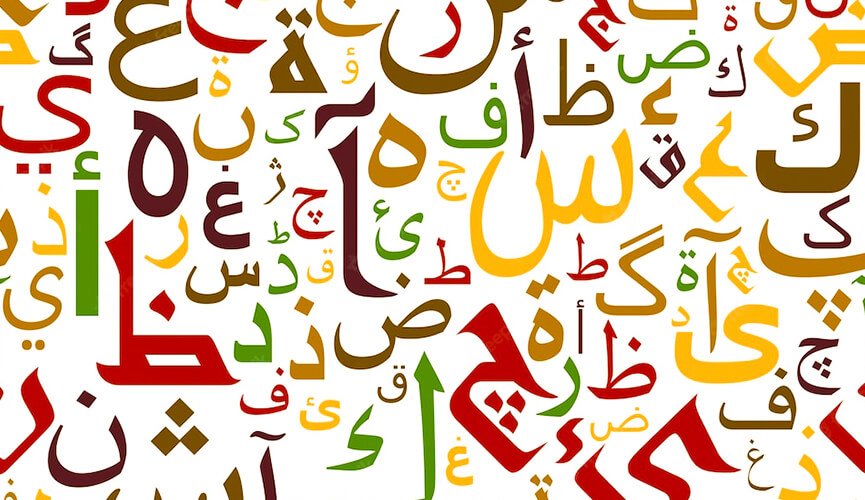
Arabic Language
Even though Egyptians understand many languages, such as English and French, Arabic is Egypt’s official and national language. This Middle Eastern language is rooted in Egypt’s long and rich past and is still essential to daily life.
Arabic is a Semitic language that almost 500 million people worldwide. It is a complex language with a long history of great books, songs, and poems. Arabic is written from right to left, and like any other language, it has its unique parts, such as its use of verb forms, the dual form, and the focus on gender in its grammar.
Different parts speak different versions of Arabic, and Egypt is no different. Egyptian Arabic is different from other forms of Arabic and has its own slang and sayings. This casual language is only used in Egypt, adding charm to people’s talk.
Undoubtedly, the Arabic language is a vital component of Egyptian culture. It is used in government, schooling, the arts, the media, and faith. Arabic has been essential to keeping and spreading Egyptian culture, customs, and history. Although Egypt is becoming increasingly modern and connected to the rest of the world, Arabic remains an essential language.
Arabic is a beautiful language with a long history, strong roots, and unique features. Egypt’s official language specializes in its culture, history, and society. Even though many languages are spoken worldwide, Arabic is still essential to Egypt’s culture and identity.
Coptic Language
The Coptic language, an Afro-Asiatic language, was once the predominant language in Egypt in the 2nd and 3rd centuries CE. It was the language most Egyptians used to talk to each other daily. It was also the language of government and faith during the Roman Empire.
The Coptic Orthodox Church continued to use Coptic in church services even though it became less common in the following centuries. It is still used in church events and is integral to Egypt’s history and culture.
The Coptic language was thought to be dead because it isn’t used much today, but there has been a new resurgence of interest in it. Numerous organizations and initiatives, such as the Coptic Language Studies program at the Coptic Orthodox Theological Seminary in California, keep and study the language alive.
Also, young Egyptians are becoming more interested in learning Coptic because they understand its importance to their cultural history. Scholars and translators from all over the world who study the history and decipherment of old scripts are also interested in Coptic.
In conclusion, the renewed interest in the Coptic language has shown its importance to Egypt’s history and culture. Even though it might never become Egypt’s primary language again, it is still used in religious and academic settings, so its history will live on for future generations.
Nubian Language
Nubian is a Nilo-Saharan language that is also called Mahas or Fadicca. It has been spoken in the Nile Valley for thousands of years. The old Nubian Kingdoms of Kerma and Napata are the start of the Nubian people’s unique culture and past. During the Middle Ages, the Nubians changed their religion from Paganism to Christianity and Islam, but they kept their language and habits.
Today, fewer and fewer people speak Nubian. Most Nubians now speak Arabic, and the language needs to be taught to the younger people. This loss of speech is a threat to the unique customs and stories that have been passed down through generations among the Nubian people.
There are, thankfully, attempts to keep the Nubian language alive. Along with other groups and people, the Nubian Language Society is trying to record and bring back the language. They are making teaching tools, having language classes, and putting on cultural events to show how important language is.
Also, the Egyptian government knows that the Nubian language has cultural worth and has made it a part of attempts to protect cultural assets. Schools in southern Egypt now teach the Nubian language and plan to make it part of the national curriculum.
Even though the future of the Nubian language is unclear, the attempts to keep it alive show how strong and determined the Nubian people are to keep their culture alive. By sharing their language and stories, the Nubian people keep their traditions alive and add to Egypt’s and the world’s cultural scene.
Common Languages Spoken in Egypt
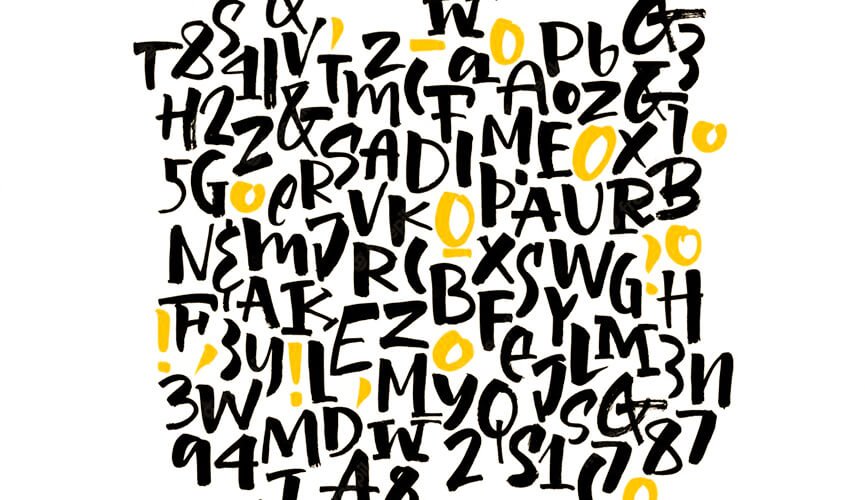
A. Overview of the most commonly spoken languages
Egypt is the Arab world’s most populous country, with more than 100 million people living there. Arabic is the official language of Egypt. It is also the language most people speak there. Egyptian Arabic is its own accent and can differ from Arabic spoken in other Arabic-speaking countries. Nearly 90% of the people in Egypt can say it.
Egypt is home to people who speak languages other than Arabic, such as Berber, Nubian, and Domari. People living in Siwa Oasis speak Berber, while Nubian is spoken in southern Egypt. The Dom people are a semi-nomadic group that lives in Egypt, Morocco, and other North African countries. They talk to Domari, which is their language.
B. Role of the English language in Egypt
Because Egypt was once part of the British Empire, English is widely spoken there, especially in business and tourism. As a second language, English is taught in schools, which makes it one of the most essential languages in the country. Many Egyptians also use English to keep up with global trends, especially in social media, work, and higher education.
Most Egyptians in popular vacation spots like Cairo, Luxor, and Alexandria speak English well. It is a valuable skill for Egyptians who want to work in the hotel, flight, or cultural exchange programs.
C. People speak other languages because of immigration
Egypt has a long history of people moving there from other places. Because of this, many people in different parts of the country speak different languages. For example, people born in Italy and grew up in Alexandria talk to Italian, and people born in Greece and grew up in Cairo speak Greek. Armenian, Hebrew, and French are also widely spoken in Egypt because many come from those countries.
Many people have fled to Egypt from nearby countries like Syria and Sudan in recent years. In some parts of the country, languages like Syrian Arabic, Sudanese Arabic, and Tigrinya are also becoming more popular. Because of this, Egypt has become a country with many different languages and cultures.
Conclusion
Language is an integral part of society that affects it in many ways. Egypt’s culture is shaped by its language in many ways, from how people talk to each other to how they act in public. Egypt, which speaks Arabic, has a rich and complicated cultural history that shows up in its language. Egypt’s Arabic language has changed because of its old Pharaonic background and later Islamic and modern elements.
Language is a way to communicate and present yourself; through language, you can fully understand how complex society is. Egypt comprises many different groups with different ideals, views, and customs. Because language is such an essential part of national identity, keeping it alive and enjoying it is crucial.
In conclusion, there is much to say about the language spoken in Egypt. From its roots in history to how it is used today, the Arabic language in Egypt is an interesting topic that deserves more study. Whether you are interested in languages, a tourist, or a student, there is a lot to learn and enjoy about the Egyptian language and culture. We hope this article has given you some good ideas about the subject and made you want to know more about this exciting field.
Valid words and phrases in Egyptian Arabic:
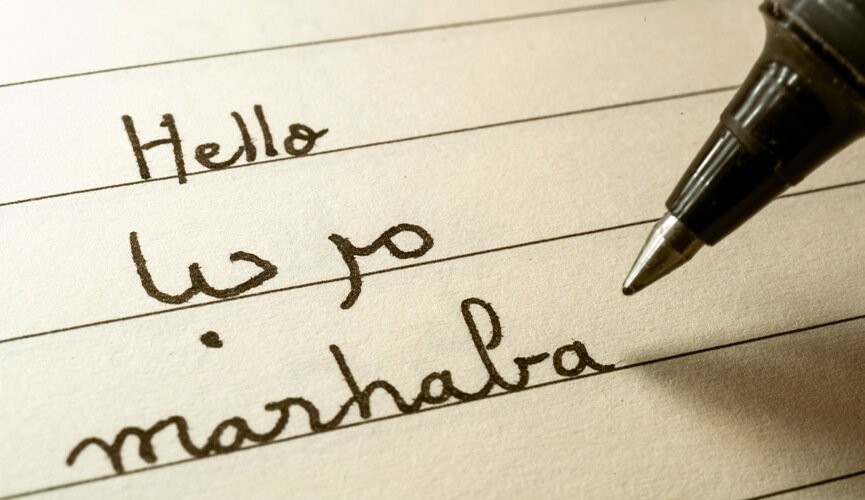
This is where you can find MSA, which stands for Modern Standard Arabic. This is not the same as Egyptian Colloquial Arabic, which is a form of the street language. However, people should be able to understand you if you speak slowly and clearly. Learning to read Arabic and write it in the Latin alphabet is hard. The spelling of the Egyptian language is notorious for being everywhere. Here is a phonetic translation that we have kept simple. Words or letters that are in bold are meant to stand out.
In an Emergency
- Help! → an-najdah!
- Stop! → qeff!
- I want to go to a doctor → oreed al zehab lel tabeeb
- I want to go to a pharmacist → oreed al zehab lel saydaliya
- Where is the nearest telephone? → ayn yoogad aqrab telifoon?
- Where is the hospital? → ayn toogad al mostashfa?
Communication Essentials
- Yes/No → naam/laa
- Thank you → shokran
- You’re welcome → tasharafna
- Please → (asking for min fadlak something)
- Please → (offering) tafadal
- Good morning → sabaah al-khayr
- Good afternoon → as-salaam alaykum
- Good evening → masa’ al-khayr
- Goodbye → maa as-salaamah
- Excuse me, please → min fadlak, law samaht
- today → al-yawm
- yesterday → al-ams
- tomorrow → ghadan
- this morning → haza as-sabaah
- this afternoon → al-yawm baad az-zohr
- this evening → haza al-masa’
- here → hona
- there → honaak
- what? → maza?
- when? → mata?
- where? → ayn?
Useful Words and Phrases
- I don’t understand → la afham
- Do you speak → hal tatakalam
- English/French? → engleezee/faransee?
- I don’t know → la aaref
- Please speak more slowly → men fadlak tahadath bebote’
- My name is… → esmee…
- How do you do, → kayf haalak,
- pleased to meet you → tasharafna bemearefatak
- How are you? → kayf haalak?
- Sorry! → aasef
- God (Allah) willing → enshaallah
- Can you help me, please? → min fadlak, momken tosaaednee?
- Can you tell me…? → men fadlak qol lee?
- I would like…. → oreed…
- Is there…here? → yugad…hona?
- Where can I get…? → ayn ajed…?
- How much is it? → kam thaman haza (m) hazeehee (f)
- What time is it? → as-saah kam
- I must go now → labod an azhab al-a’n
- Do you take credit cards? →hal taqbal Visa
- Where is the toilet? → ayn ajed al-hamam?
- Go away! (for children only) → emshee!
- Excellent! → momtaaz!
- left → yasaar
- right → yameen
- up →fawq
- down → asfal
Travel
- driver’s licence → rokhsat qiyaadah
- I’ve lost my way → ana dalayt at-tareeq
- I want to go to… → oreed al zehab le…
- garage (for repairs) → garaaj meekaaneekee
- petrol/gas → banzeen
- petrol/gas station → mahattat banzeen
- A ticket to…please → law samaht,tazkarat zehaab le…
- airport → mataar
- ticket → tazkarah
- passport → jawaaz safar
- visa → veeza
- airport shuttle → baas al-mataar
- When do we arrive in…?→ mata nasel ela…?
- What station is this? → hazehe ay mahattah?
- train → qetaar
- sleeping car → arabat nawm
- bus → otobees
- bus station → mahatet el-otobees
- boat → markeb
- cruise → jawlah bahareeyah
- ferry → abaarah
- taxi → taaksee
Staying in a Hotel
- you have any vacancies? → hal yoogad ghoraf khaaleeyah?
- I have a reservation → andee hajz
- I’d like a room with → oreed ghorfah bea
- bathroom → hammam
- hotel → fondoq
- air-conditioning → takyeef
- double room → ghorfa mozdawajah
- single room → ghorfa be-sareer waahed
- shower → dosh
- toilet →towaaleet
- toilet paper → waraq towaleet
- key → meftaah
- lift/elevator → mesad
- breakfast → fooor
- restaurant → matam
- Bill → faatoorah
Shopping
- I’d like… → oreed…
- Do you have…? → hal andak…?
- How much is this? → be-kam haza?
- I’ll give you… → ha aateek…
- Where do I pay? → ayn adfaa?
- to buy → yashtaree
- to go shopping → yatasawwaq
Sightseeing
- mosque → jaamea
- street, road → shaarea
- house → bayt
- square → midan
- beach → shaatee’
- museum → mathaf
- church → kaneesah
- castle palace → qasr
Discaver More About Egypt :

